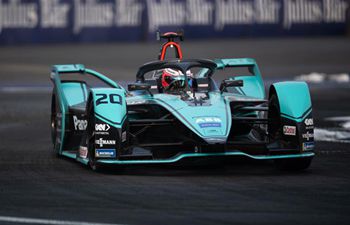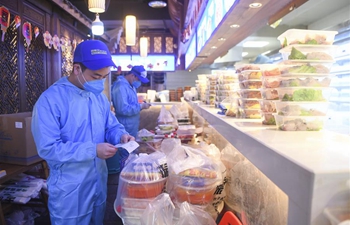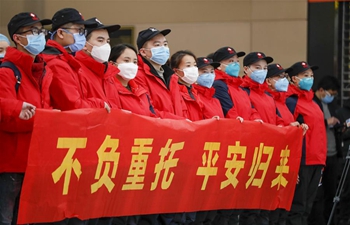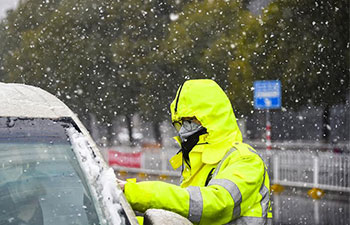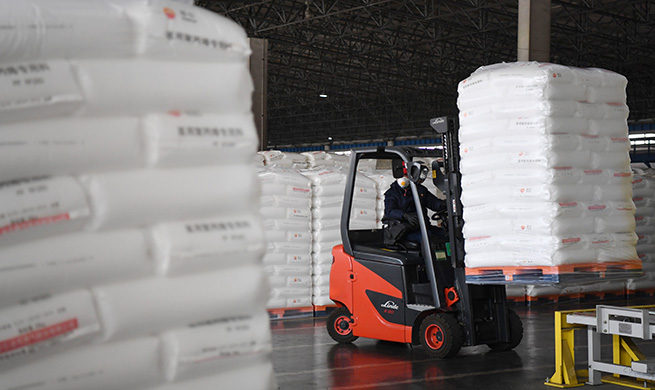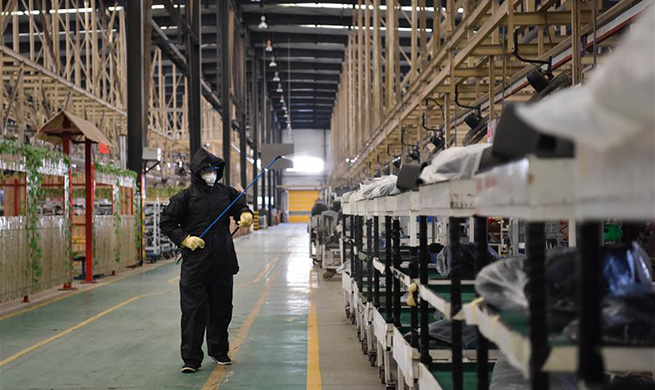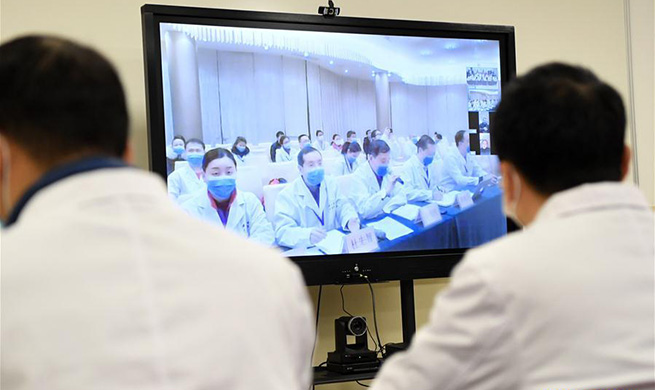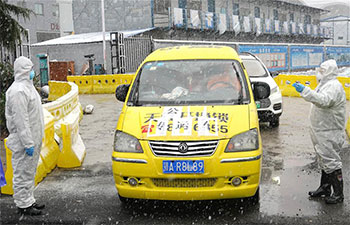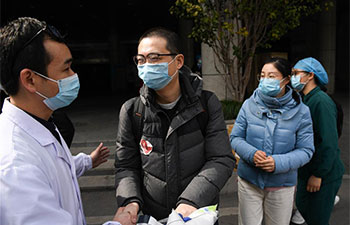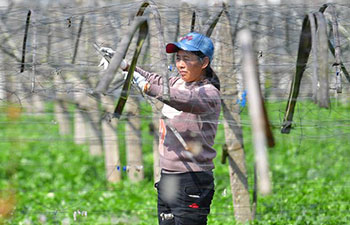NAIROBI, Feb.16 (Xinhua) -- International coffee players have blamed the current coffee crisis to persistently low prices and the increasing effects of climate change.
Participants who attended the week-long 18th African Fine Coffees Association (AFCA) conference and exhibition which ended in Mombasa on Friday complained that low prices have denied smallholders an opportunity to enjoy their hard-earned sweat.
The price decline, the players noted, has so far created disillusionment to majority of over 25 million coffee family farmers worldwide who are facing losses as they struggle to cover their operating costs while prices decrease amid rise in inputs, compliance and transactions cost.
According to Nairobi Coffee Exchange (NCE), coffee earned Kenya 1.3 billion shilling (13 million U.S. dollars) in December 2019, down from 2.2 billion shilling in the same period of 2018, representing a 41 percent decline.
"Despite the recovery in the global prices, the average price as at the end of the December 2019 remained lower than the same period in 2018 by 25.73 percentage points from 176 dollars in December 2018 to 150 dollars in 2019 per 50 kg," NCE chief executive officer Daniel Mbithi told the forum.
Denis Seudieu, International Coffee Organization (ICO) lead economist noted that the crop might be scarce in the market in the future as many countries are likely to cease producing due to a decrease in prices which currently are 30 percent below their 10-year average.
This, Seudieu said, is over and above the competition from other economic sectors such as real estates and general urbanization, high cost of production and governments not offering subsidies especially in third world countries.
Seudieu said the current scenario coupled with vagaries of climate change is thus expected to provoke stiff competition from other beverages mainly tea, cocoa, and soft drinks.
"As world coffee community we fear that the downward trend of prices is likely to demoralize farmers and thus contribute to reduced production even as the demand of the beans continues to grow at a healthy rate of two percent annually. Since 2016 the coffee market has experienced a continued downward trend and today prices are 30 percent below the 10-year average," he said.
AFCA executive director Samuel Kamau argued that value chain players need to fast-track discussions and suggestions bordering on instituting a new price discovery mechanism.
In doing so, Kamau said, will help in taming the price volatility in the global market.
Following the exit of the United States from the ICO in 2018, there are emerging discussions on favoring other price discovery mechanisms as the New York Coffee Exchange (NYCE) is no longer justifiable.
Disregarding the NYCE, Kamau argued, the value chain players can resort to countries established price platforms, for example, Nairobi Coffee Exchange and Jakarta Coffee Exchange in Kenya and Indonesia respectively.
In September 2018 during the 122nd International Coffee Council Session in London, coffee value chain players expressed an alarm about low prices by the passage of Resolution 465 which entrusted the ICO with a number of tasks.
These include guarantee fair living income to the coffee farming community and also ensure long term sustainability of the global coffee sector.
The director-general of Agriculture and Food Authority (AFA) of Kenya, Anthony Muriithi said farmers are suffering from low prices in addition to the high cost of production and increasing effects of climate.
"We have lined up a number of strategies geared towards shielding the farmers against the current price volatility. We are implementing new industry regulations, reviewing standards, enhancing provision of quality seeds and general relook of the current legal framework," said Muriithi.
